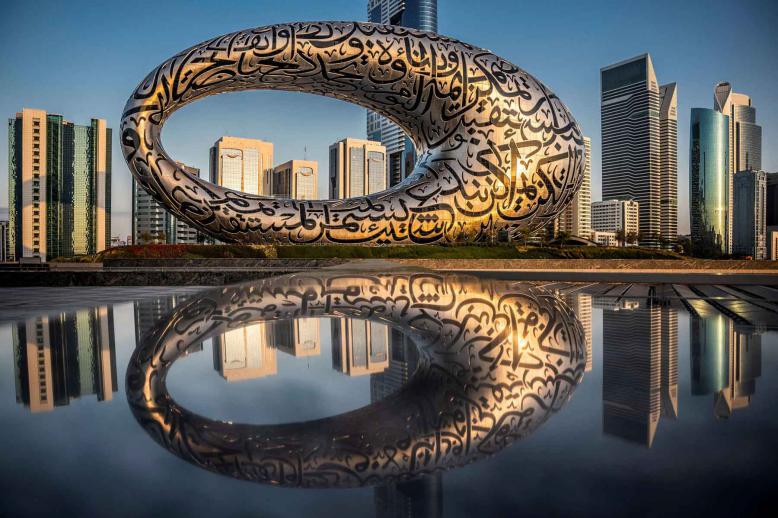Turkey’s response to coronavirus has been complete shambles
Despite claims from government officials on April 15 that the coronavirus threat is “under control,” Turkey’s response has been little short of a disaster. First off, the first positive case wasn’t diagnosed until March 11.
On the same date, Germany, whose population is similar to Turkey’s, recorded 1,884. While that may suggest the virus was late getting into Turkey, the more likely scenario is that a complete absence of testing meant it was spreading rampantly among the population, unbeknown to health officials.
Then, Turkey was weeks late in initiating the closure of schools and universities and finally did so on March 16. As a result, by April 20 Turkey had surpassed China in its number of confirmed coronavirus cases.
This means that the country’s trajectory over the coming weeks is, according to observers, very worrying.
Analysts have argued that Turkey now finds itself in the worst position of any emerging market. “Ankara, however, is not prepared for the inevitable economic slowdown,” write Aykan Erdemir and John Lechner in US publication Foreign Policy.
“As the country’s struggling businesses continue to experience shrinking revenues, the lira equivalent of servicing their foreign exchange liabilities has grown 20 per cent over the last 12 months. Add to that the nosedive in central bank’s net foreign currency reserves to a meagre $1.5 billion,” Erdemir and Lechner write.
Then there’s the fact that Turkish authorities have thought it necessary to arrest hundreds of people and question eight journalists for alleged scaremongering. What’s more, the ruling Justice and Development party (AKP) government appears incapable of impressing upon people the need for physical distancing. Two weeks ago, the Hurriyet Daily News reported the seaside town of Bodrum as being “overcrowded.”
“We can observe from the density of people in the streets, marketplaces and bazaars, the population has increased a lot,” its mayor told the Turkish publication just a day after a 48-hour curfew was lifted. “We had donations, but the government issued a circular and banned them, even though donations are permitted in the law on municipalities,” the mayor added.
The botched 48-hour curfew placed on 31 provinces early April — which gave civilians just two hours of notice — has highlighted the ruling AKP’s embarrassing lack of foresight.
Ostensibly called to keep people indoors over a warm weekend, it instead resulted in thousands rushing to shops for essential supplies late on the night of April 10. Hundreds of people queued in front of bakeries for hours throughout the country and fist fights on the streets have been a common sight.
What’s more, the mass gatherings and crowds could, and probably have, contributed to the further spreading of the virus. And, even more shambolic, it was announced half an hour after the statement that bakeries would not close at all. Interior Minister Suleyman Soylu offered his resignation following the farce, but that was swiftly rejected by President Recep Tayyip Erdogan.
Nonetheless, it created significant political ructions and, for a time, served to distract Turks from news of the virus. “Monday morning, while the focus should have been on how to track and enforce self-isolation on those who went out onto the streets on Friday night, violating all the rules on social distancing in the process, the main topic of discussion was Soylu’s political career,” wrote Hurriyet Daily News columnist Barcin Yinanc in the aftermath.
The political dithering has appeared in various forms. In early March, Health Minister Fahrettin Koca found it necessary to blame European countries for spreading the virus, despite the fact that ultimate responsibility for his own people (as with every government) lies with the Turkish government. In fact, this was exactly the sentiment Soylu expressed in his resignation speech, stating: “I should not have caused such scenes in this incident, whose responsibility belongs to us.” As a major transit and transport route between Europe, the Middle East and Asia, Ankara should have realised early on the country was at far greater risk to mass infection than most others. Istanbul, the tenth most-visited city in the world last year, is today thought to be the scene of more than 2,100 COVID-19 deaths — and that number is rising.
By comparison, Hong Kong, one of the world’s most popular cities for tourists, moved quickly to enact the single most important factor in curbing the virus: social distancing. That meant it has endured just four deaths and is today largely COVID-19 free.
Perhaps worst of all, one of Turkey’s top virologists,
Dr Mustafa Ulasli, spends his days sitting on his hands. He was fired from his position as an academic for alleged links to the outlawed Gulen movement in 2016. Despite since being cleared of any wrongdoing, he said his efforts to offer help to the government have been ignored. “I’m just sitting at home. If someone wants any help, I’m ready to do anything without any fee as a volunteer … If they gave me the opportunity, I would be able to work with a team developing tests to extend the diagnostic approach,” he told The National newspaper in Abu Dhabi last month.
To be sure, the response is not the fault of the government alone. There have been reports of people running from buses to escape quarantine periods and mass gatherings have continued despite pleas from health officials. Turkey’s per capita fatality rate remains low. But with each passing day, the number of confirmed cases is ballooning. As a consequence, Turkey’s darkest days still lie ahead.
Stephen Starr is an Irish journalist who lived in Syria from 2007 to 2012. He is the author of Revolt in Syria: Eye-Witness to the Uprising (Oxford University Press: 2012).
This article was originally published in The Arab Weekly.






